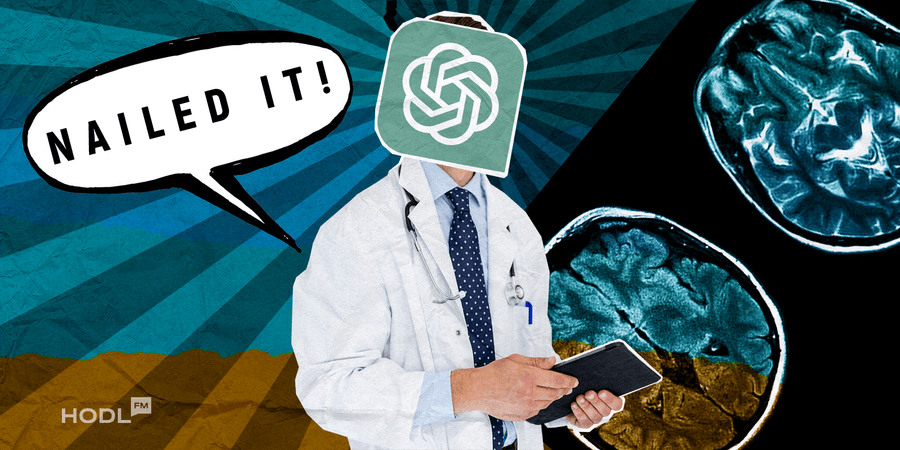Missed the thrilling new happenings from last week? Well, this time, we’ve got a bouquet of AI news for you. ChatGPT is eyeing your spot at university after breezing through the entrance exam. Rumor has it, Microsoft’s corridors are buzzing about the new Windows equipped with AI, and all traders might dodge the long and often labyrinthine KYC process thanks to this tech. Finally, something to cheer them up after their wallets took a hefty hit last week. But let’s tackle these stories one by one.
ChatGPT-4.0 Passed Neurology Exam. Should we worry?
Seventy percent of correct answers usually pass as a decent score in educational institutions. ChatGPT-4.0 just aced its clinical neurology exam with an impressive 85% correct responses. Still not afraid that AI will take over the world? We’re starting to have some doubts…
Related news:
Meta’s Megabyte System Takes GPTs to the Next Level
8 Exciting Crypto Forecasts for 2033 from ChatGPT’s Crystal Ball
Researchers at Heidelberg University Hospital and the German Cancer Research Center in Heidelberg unleashed a fusion of questions for a neurology exam from the American Board of Psychiatry and Neurology, spiced up with a small amount of brain-busters questions from the European Board for Neurology.
The experimental findings surfaced on December 7th. Two LLMs, ChatGPT-3.5 and its fresher alter ego, ChatGPT-4.0, squared off in this test. While the ChatGPT managed 66.8%, cracking 1306 out of 1956 questions, the newer model, ChatGPT-4.0, aced it with 85%, nailing 1662 correct responses. Meanwhile, we mere humans averaged a respectable 73.8%.
ChatGPT-4.0 outshadowed human users in questions covering behavioral, cognitive, and psychological realms, acing the neurological exam like a pro. According to the squad of researchers behind this experiment, as these colossal language models continue to level up, they could find some serious within the field of clinical neurology.
We’re absolutely not surprised by these staggering results. After all, ChatGPT doesn’t bear the weight of getting into Ivy League universities. If it had flunked the test, it wouldn’t have ended up at the local “College for Fools.” But hey, we’re still proud of this guy. It’s reassuring to know that AI is tackling some crucial healthcare tasks, like hunting for that cancer cure.
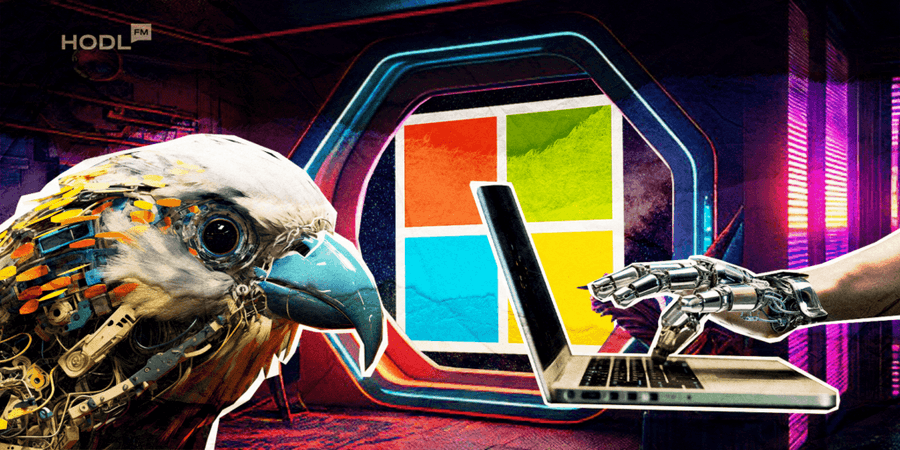
Improved Microsoft Windows AI coming soon
Microsoft’s AI adventure took a giant leap forward with the debut of Microsoft Copilot on Windows 10 powered by GPT-4. The AI assistant, previously exclusive to Windows 11, was generously unleashed to the public in November for free. And the Bill Gates crew isn’t hitting the brakes there.
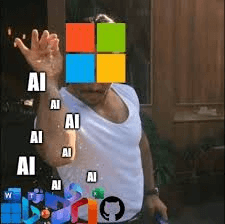
The upcoming Windows update, code-named “Hudson Valley” (not so secret anymore), is set to hit the scene in 2024, potentially causing a seismic shift in how this tech giant crafts its operating systems. According to Windows Central, this update is rumored to be built on a new platform called Germanium. It might include an AI-based Windows shell, an “advanced copilot” for turbocharged search and work processes, and a slew of other improvements.
Read more about Copyright in the Age of AI
The “Hudson Valley” update also marks a return to an annual release cycle for major versions of the Windows platform, ditching the current three-year lifecycle. This faster pace should make delivering new features a breeze, focusing attention on one big yearly overhaul, sprinkled with smaller feature drops.
Word has it that besides weaving AI into its existing products, Microsoft is brewing up some fresh AI-powered user treats. Super Resolution is set to tap into neural processing unit (NPU) hardware to beef up video and gaming quality. Meanwhile, the new Live Captions feature is primed to deliver real-time translations across multiple languages.
We don’t know how it’ll play out in practice, but it sounds super cool. We’d definitely give it a shot, sorry Steve!

Bitcoin Price Rollercoaster Has Significantly Drained Traders’ Wallets
During Monday’s trading session on December 11th, crypto futures traders waved goodbye to over $500 million in liquidated positions. With sharp volatility hitting high-leverage longs and shorts. Bitcoin (BTC) itself went on a wild spin, falling from $43,000 down to a terrible $40,300, according to the data.
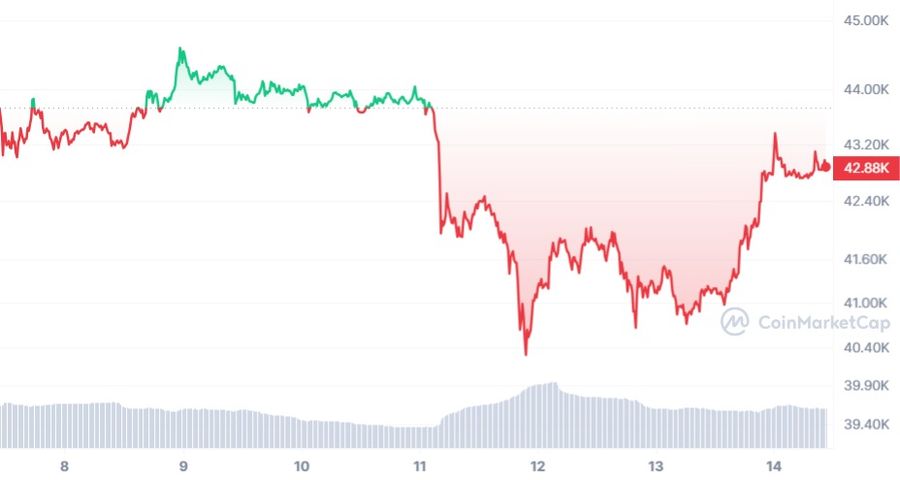
The grandest liquidation order took center stage at Bitmex, where a Chainlink (LINK) futures position worth a whopping $33 million got the boot. The lion’s share of these liquidations went down at OKX, totaling a staggering $190 million. Right on its tail, there’s Binance with $148 million and Huobi trailing close with nearly $60 million.

Major altcoins like Chainlink (LINK), ADA Cardano, and SOL Solana dived more than 8%. However, Elon Musk’s beloved token and its “clone,” Shiba Inu, showed slightly better resilience with a 5% drop. And some stood tall and even strutted their stuff, gaining a hefty 20%: BNB, AVAX, and TIA from Celestia. Some coins weather the storm better than others, it seems!
Despite the market turmoil, Muneed Ali, founder of Trust Machines, the Bitcoin development firm, is confident we’re entering a Bitcoin era unlike any before. Ali’s confidence is also fueled by potential ETF approvals, the halving, and an influx of new developers.
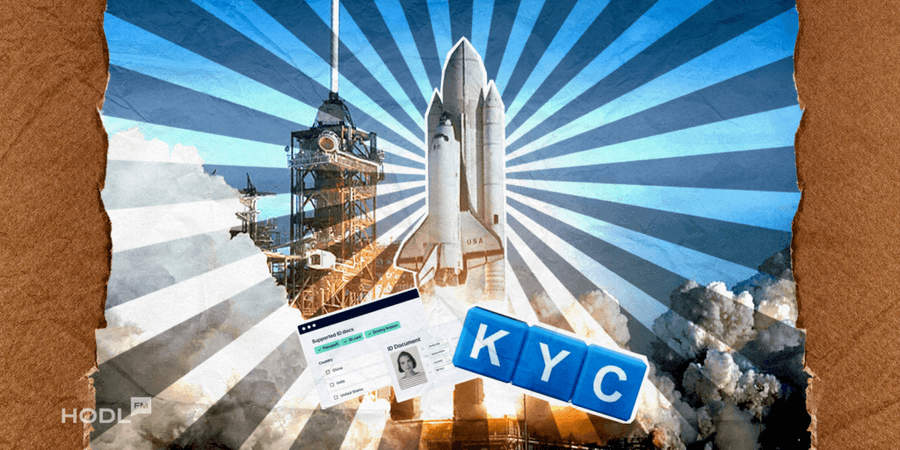
KYC might be easier than Face ID unlocking
We’ve all been there – wanting to hop onto a crypto service, only to face unnecessary hurdles in the form of a tedious, tangled registration and KYC process. It’s a time sink for us and a potential customer drain for the company.
Traditional KYC systems often grapple with issues like the complexity and laborious nature of registration. Usually, to confirm your existence in this universe, you might upload a selfie with your pet, solve a Rubik’s Cube in the dark, or provide the Wi-Fi password you set two years ago. And remember, they’re not evaluating your selfie game, but could this photo stand up to a professional photoshoot?

Companies are fed up with losing potential customers due to outdated and ineffective KYC methods. Checkin.com is like an oasis in the desert after a tiresome trek. Its goal is to set right the entire KYC process, solving all those traditional problems while keeping businesses compliant and users engaged.
Checkin.com offers a comprehensive software tool for KYC/registration, using artificial intelligence (AI), biometrics, and smart modules to make the process smoother. Its platform structure can handle KYC and related adjustments in over 223 countries and territories, thanks to AI-based localization. Plus, it’s got encrypted, limited data processing for the European Union and other regions.
With tech like optical character recognition and machine learning under its hood, this system can safely process over 14,000 document types in the blink of an eye. Combined with biometrics and facial matching, the registration process becomes faster, simpler, and safer compared to those outdated solutions. Additionally, it can help customers navigate the verification process in over 80 languages.
All personal data is stashed in secure EU servers, meeting ISO 27001 and GDPR standards. Plus, it’s all encrypted, so only the chosen few get the backstage pass. This solution can slash KYC verification time by a mind-blowing 90%. KYC used to be a multi-day saga, but thanks to Checkin.com, it’s now a mere 6-minute breeze. You won’t even have time to brew a cup of tea, and the KYC process will already be done. Isn’t that just a sprinkle of Christmas Magic?

Have you noticed how nearly all the top headlines this week somehow tie back to artificial intelligence? Now, how can one not seriously contemplate the outcome of Terminator or I, Robot? It seems these super-smart computers are ruling not just the weekly news but also capturing human minds. But don’t run out and dig a bunker in your backyard. Obviously, for now, they’re just here to serve the tech gods and humanity. If that changes, we’ll be sure to drop you a memo. So, don’t miss our next update. Until next time, folks!
